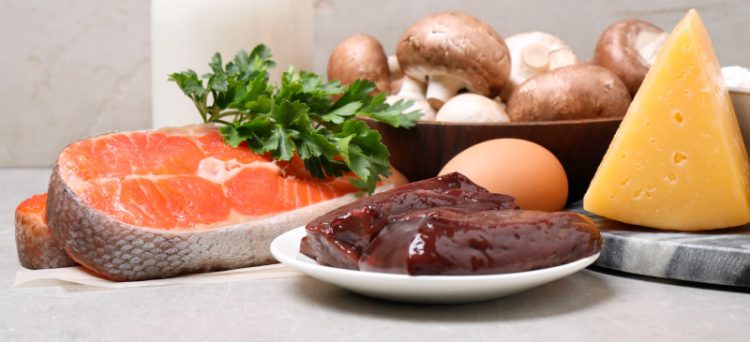Introduction: How Your Diet Affects Your Oral Health
Maintaining good oral health goes beyond brushing, flossing, and visiting the dentist. The food you eat plays a crucial role in the health of your teeth and gums. Certain foods can strengthen your enamel, fight harmful bacteria, and reduce the risk of dental problems like cavities, gum disease, and bad breath.
In this article, we’ll explore the foods that are especially beneficial for your oral health and how they can help you prevent common dental issues.
1. Calcium-Rich Foods: Strengthening Teeth and Bones
Why It’s Important: Calcium is essential for maintaining strong teeth and bones. It helps to rebuild enamel and keeps your teeth strong enough to withstand the forces of chewing and biting.
Beneficial Foods:
- Dairy products: Milk, cheese, and yogurt are rich in calcium and also contain phosphorus, which helps remineralize enamel.
- Leafy greens: Kale, spinach, and other dark leafy greens are excellent plant-based sources of calcium.
- Fortified plant-based milks: Almond milk, soy milk, and oat milk are often fortified with calcium, making them a great alternative for those who don’t consume dairy.
How It Helps: Calcium helps to protect the enamel from decay and strengthen the jawbones, reducing the risk of tooth loss.
2. Vitamin C-Rich Foods: Fighting Gum Disease and Promoting Healing
Why It’s Important: Vitamin C is a powerful antioxidant that supports healthy gums and immune function. It helps maintain the integrity of the connective tissue in your gums, preventing gum disease like gingivitis.
Beneficial Foods:
- Citrus fruits: Oranges, grapefruits, lemons, and limes are packed with vitamin C, which helps reduce inflammation and promote gum health.
- Strawberries and kiwis: These fruits are high in vitamin C and also contain antioxidants that help combat bacteria and oxidative stress.
- Bell peppers: Red, yellow, and green bell peppers are a great source of vitamin C and can easily be added to various meals.
How It Helps: Vitamin C promotes gum tissue repair and regeneration, reducing inflammation and helping to prevent gum bleeding and infections.
3. Fiber-Rich Foods: Natural Cleaners for Your Teeth
Why It’s Important: Fiber-rich foods help stimulate saliva production, which naturally cleanses the teeth and neutralizes acids in the mouth. Saliva also contains calcium and phosphate, which help remineralize the enamel.
Beneficial Foods:
- Apples: Apples are not only nutritious but also act as natural toothbrushes. The act of chewing them helps scrape away plaque and food particles from your teeth.
- Carrots and celery: These crunchy vegetables require a lot of chewing, which encourages saliva production. They also help clean teeth naturally as you eat them.
- Nuts and seeds: Almonds, walnuts, and sunflower seeds are high in fiber and provide a good source of healthy fats that help keep your teeth clean.
How It Helps: The fiber in these foods helps remove food debris from between your teeth and massages your gums, promoting better oral hygiene.
4. Phosphorus-Rich Foods: Protecting Enamel and Strengthening Teeth
Why It’s Important: Phosphorus is essential for maintaining healthy teeth and bones. It works in conjunction with calcium to strengthen enamel and helps protect teeth from the damaging effects of acids in food and drink.
Beneficial Foods:
- Eggs: Eggs are an excellent source of phosphorus, as well as vitamin D, which aids in the absorption of calcium.
- Fish: Salmon, tuna, and other fatty fish are high in phosphorus and also provide omega-3 fatty acids, which are beneficial for overall oral health.
- Meat: Lean meats like chicken and turkey are good sources of phosphorus, as well as protein, which is important for tissue repair and growth.
How It Helps: Phosphorus helps rebuild enamel, making it stronger and more resistant to decay.
5. Green Tea: Natural Antibacterial and Anti-Inflammatory Properties
Why It’s Important: Green tea contains catechins, a type of antioxidant that has been shown to help reduce oral bacteria and fight inflammation. Drinking green tea regularly can help reduce the buildup of plaque and prevent gum disease.
Beneficial Foods:
- Green tea: Green tea is rich in antioxidants and contains natural antibacterial compounds that help fight the growth of harmful bacteria in the mouth.
How It Helps: Green tea’s antioxidants reduce harmful oral bacteria, leading to fresher breath and less plaque buildup. It also helps lower the risk of developing gum disease and tooth decay.
6. Dairy and Cheese: Building Strong Enamel and Reducing Cavities
Why It’s Important: Cheese and other dairy products are not only rich in calcium, but they also contain a protein called casein, which helps to remineralize and strengthen enamel. Cheese also helps neutralize acids in the mouth, preventing enamel erosion.
Beneficial Foods:
- Cheese: Cheddar, mozzarella, and other cheeses are excellent for oral health. They stimulate saliva production and can help neutralize acids produced by bacteria.
- Yogurt: Plain, unsweetened yogurt is a good source of probiotics, which support a healthy balance of bacteria in the mouth, preventing harmful bacteria from taking over.
How It Helps: Cheese and other dairy products create a protective barrier on the enamel, helping to remineralize weakened areas and prevent cavities.
7. Water: The Best Drink for Your Teeth
Why It’s Important: Water is essential for maintaining oral health. It helps wash away food particles and bacteria, and keeps the mouth hydrated, preventing dry mouth, which can increase the risk of tooth decay and gum disease.
How It Helps:
- Hydration: Proper hydration keeps your mouth moist and helps maintain saliva production, which is crucial for neutralizing acids and promoting enamel health.
- Washing away bacteria: Drinking water throughout the day helps flush out harmful bacteria and food particles from your mouth, reducing the risk of plaque buildup.

8. Vitamin D-Rich Foods: Aiding Calcium Absorption and Promoting Gum Health
Why It’s Important: Vitamin D plays a crucial role in helping your body absorb calcium, which is vital for maintaining strong teeth and bones. It also supports gum health by reducing inflammation and boosting immune function.
Beneficial Foods:
- Fatty fish: Salmon, mackerel, and sardines are excellent sources of vitamin D.
- Egg yolks: Egg yolks are rich in vitamin D and can help support the body’s calcium absorption.
- Fortified foods: Some dairy products, plant-based milks, and cereals are fortified with vitamin D.
How It Helps: Vitamin D ensures that your body can properly absorb calcium, leading to stronger teeth and bones, as well as healthier gums.
9. Vitamin K-Rich Foods: Supporting Bone Health and Healing
Why It’s Important: Vitamin K is essential for bone health and helps your body repair and regenerate tissues, including gum tissue. It also plays a role in preventing bone loss around the teeth, which can help maintain overall oral health.
Beneficial Foods:
- Leafy greens: Kale, spinach, and broccoli are rich in vitamin K, which supports healthy bones and gum tissue.
- Fermented foods: Natto (fermented soybeans) is an excellent source of vitamin K2, which plays a key role in bone and dental health.
How It Helps: Vitamin K helps your body utilize calcium more effectively and promotes healing of gum tissues, which can help prevent gum disease.
10. Berries: Natural Antioxidants to Combat Gum Inflammation
Why It’s Important: Berries like strawberries, blueberries, and raspberries are rich in antioxidants, which help fight inflammation and promote overall oral health. They also contain vitamin C, which supports gum health and prevents gum disease.
Beneficial Foods:
- Strawberries: High in vitamin C and antioxidants, strawberries help reduce gum inflammation and fight bacteria.
- Blueberries: Packed with antioxidants, they help prevent damage to the gums and reduce the risk of oral infections.
- Raspberries: Rich in fiber, they help stimulate saliva production, which naturally cleanses the mouth.
How It Helps: Berries help reduce inflammation in the gums and promote overall oral hygiene by neutralizing free radicals that can damage cells in the mouth.
Conclusion: A Balanced Diet for Healthy Teeth and Gums
Your diet plays a crucial role in maintaining strong teeth and gums. By incorporating calcium-rich foods, vitamin C-packed fruits, fiber-rich vegetables, and plenty of water into your daily routine, you can help prevent cavities, gum disease, and other oral health issues. Additionally, foods that are rich in antioxidants, such as green tea and berries, can help protect your gums from inflammation and bacteria buildup.
By choosing the right foods and maintaining a consistent oral care routine, you can support your dental health and ensure a bright, healthy smile for years to come.













































Discussion about this post